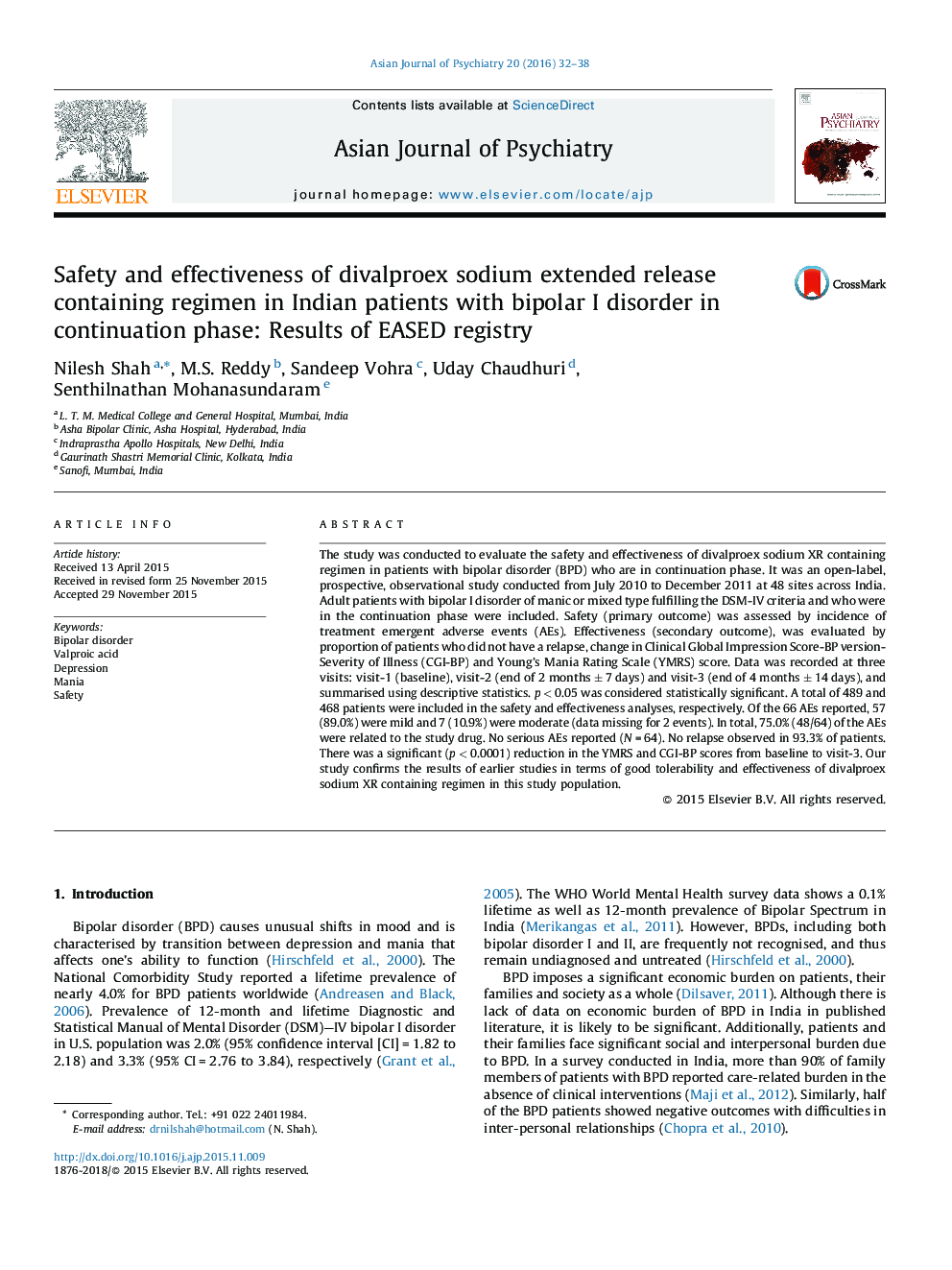| Article ID | Journal | Published Year | Pages | File Type |
|---|---|---|---|---|
| 317312 | Asian Journal of Psychiatry | 2016 | 7 Pages |
•Safety and effectiveness of divalproex sodium XR.•Data from Indian bipolar disorder patients.•YMRS and CGI-BP score improved, indicating reduction in severity of illness.•Good tolerability; only mild/moderate adverse events.
The study was conducted to evaluate the safety and effectiveness of divalproex sodium XR containing regimen in patients with bipolar disorder (BPD) who are in continuation phase. It was an open-label, prospective, observational study conducted from July 2010 to December 2011 at 48 sites across India. Adult patients with bipolar I disorder of manic or mixed type fulfilling the DSM-IV criteria and who were in the continuation phase were included. Safety (primary outcome) was assessed by incidence of treatment emergent adverse events (AEs). Effectiveness (secondary outcome), was evaluated by proportion of patients who did not have a relapse, change in Clinical Global Impression Score-BP version-Severity of Illness (CGI-BP) and Young's Mania Rating Scale (YMRS) score. Data was recorded at three visits: visit-1 (baseline), visit-2 (end of 2 months ± 7 days) and visit-3 (end of 4 months ± 14 days), and summarised using descriptive statistics. p < 0.05 was considered statistically significant. A total of 489 and 468 patients were included in the safety and effectiveness analyses, respectively. Of the 66 AEs reported, 57 (89.0%) were mild and 7 (10.9%) were moderate (data missing for 2 events). In total, 75.0% (48/64) of the AEs were related to the study drug. No serious AEs reported (N = 64). No relapse observed in 93.3% of patients. There was a significant (p < 0.0001) reduction in the YMRS and CGI-BP scores from baseline to visit-3. Our study confirms the results of earlier studies in terms of good tolerability and effectiveness of divalproex sodium XR containing regimen in this study population.
